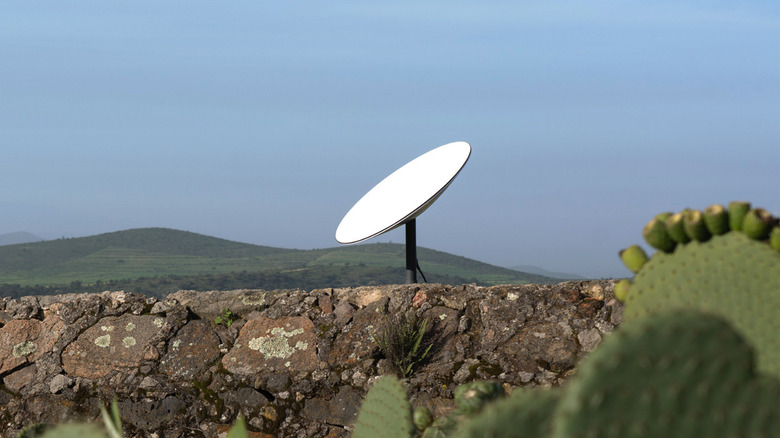Elon Musk's Starlink Just Hit A Major Roadblock
The U.S. Federal Communications Commission (FCC) has rejected an application submitted by Elon Musk's SpaceX that would have granted it subsidies worth $885.5 million for offering broadband internet services in rural areas via its Starlink satellite system. The regulatory body also canceled subsidy plans worth over a billion for LTD Broadband. Explaining the reason behind canning the two proposals, the FCC's official statement notes that "these applications failed to demonstrate that the providers could deliver the promised service."
FCC Chairwoman Jessica Rosenworcel mentioned that the government can't "afford to subsidize ventures that are not delivering the promised speeds or are not likely to meet program requirements." She added that, despite holding a lot of promise, the Starlink architecture was still a project in development that required a $600 investment to procure its network reception dish before users could latch onto the internet beamed by Starlink satellites.
SpaceX was initially earmarked to get support from the Rural Digital Opportunity Fund (RDOF) program, an FCC initiative that would pump billions of dollars towards building infrastructure that delivers affordable, high-speed internet in rural areas. LTD Broadband was the biggest winner in the initial auction in December 2020 with a proposal of over $1.3 billion in benefits.
Nascent technology that fails to deliver
According to the public notice shared by the FCC, SpaceX was supposed to deliver low-latency broadband internet (100 Mbps downlink, 20 Mbps uplink) in 642,925 locales across 35 states. Citing an Ookla report from July of 2022, the agency claimed that Starlink's internet speed had been declining, especially noting that uplink speeds dipped below the baseline 20 Mbps mark. However, the notice also throws in a few harsher observations regarding SpaceX and its Starlink observations.
In vetoing the application proposals for LTD and SpaceX's Starlink, the agency notes that it is avoiding risky bets "that promise faster speeds than they can deliver" and "plans that are not realistic or that are predicated on aggressive assumptions and predictions." As such, it was determined that Starlink was incapable of meeting the requirements laid out by the FCC.
However, it is not the end of the road for SpaceX. The company can again apply for subsidies in the next phase of RDOF auctions as it continues to send more internet-beaming satellites into the Low-Earth Orbit (LEO). So far, the company has injected thousands of Starlink LEO satellites, crossing the 3,000 mark with another Falcon 9 mission earlier this week. Plus, SpaceX now offers a service that provides Starlink installation on boats, after getting the FCC's approval to offer internet services on the move.

